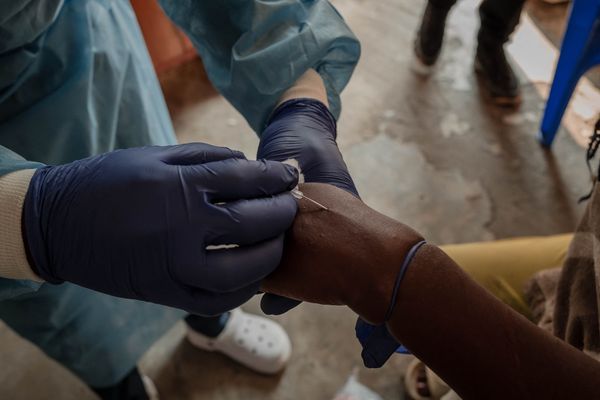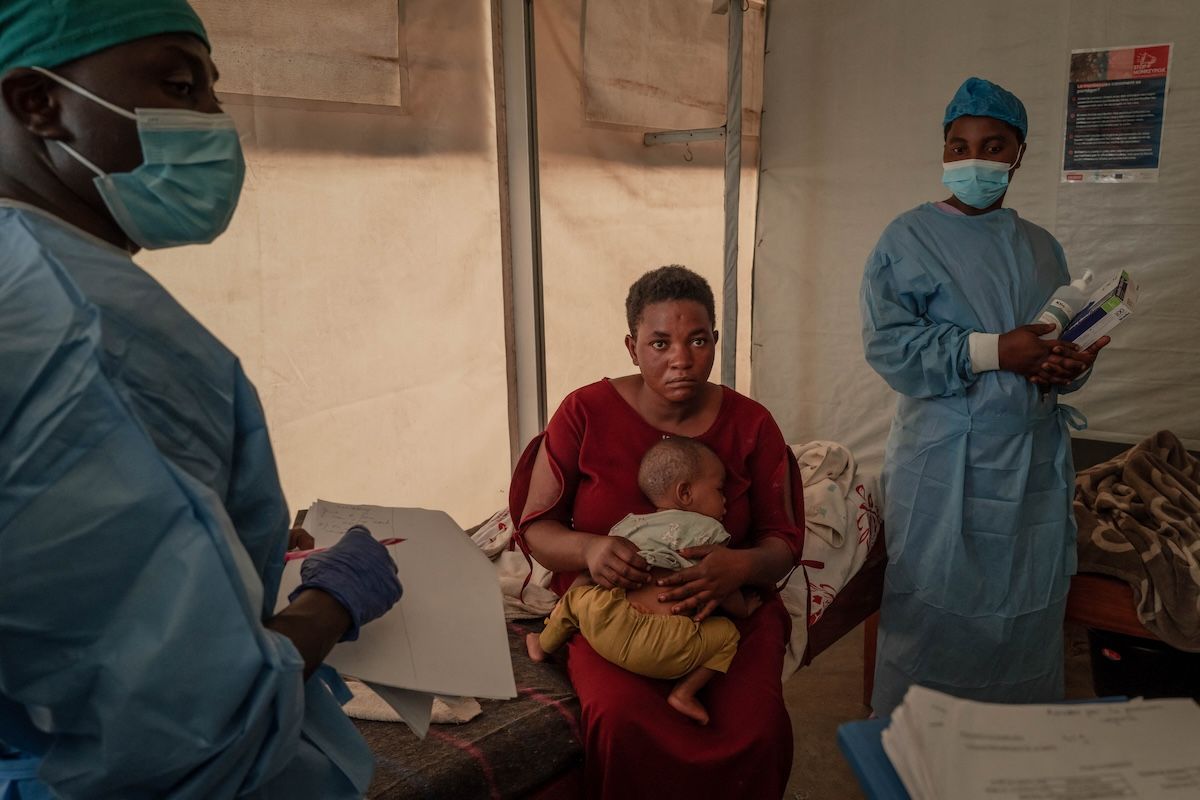Another global emergency involving mpox is unfolding, with cases spreading from Africa now springing up across the globe, an echo of the viral crisis two years ago. But this time around, things are different, with a mutated strain of the mpox virus that seems to be more contagious — and more deadly, threatening to become a pandemic on par with COVID-19.
The crisis first attracted attention earlier this year in the Democratic Republic of Congo, where most cases are currently concentrated. But it soon began to spill over into at least 13 neighboring countries. In late June, health authorities first rang alarm bells over a new strain of mpox, clade Ib, spreading through the North and South Kivu provinces of the Democratic Republic of Congo. Scientists believe it mutated from the lineage called clade II that impacted the U.S. and other Western countries in 2022.
Now the virus is spreading beyond Africa. On Thursday, Sweden confirmed its first case of the new strain of mpox, the first known infection of the strain outside of Africa. European officials have said other cases are "highly likely" to be found. So far, this year there have been 14,719 suspected and 2,822 confirmed mpox cases, with 99 percent reported in the African continent. That tally includes 517 deaths, giving this mpox clade an estimated case fatality rate of 3%.
The news came only a day after the World Health Organization (WHO) declared mpox a global public health emergency for the second time in two years, but this time concerning a seemingly more rapidly spreading strain.
“Spread to other countries and areas is also likely and remains very concerning,” the WHO told Salon via email. “There remains a risk of wider outbreaks, and WHO is working with countries in the region to step up preparedness, strengthen surveillance and cross-border collaboration.”
In a statement from Dave Daigle, a spokesperson for the U.S. Centers for Disease Control and Prevention (CDC), said the public health agency “is closely monitoring the situation” in the U.S., and the agency will provide updates as needed.
"While it is a possibility that clade 1b cases may end up in the United States, it's something that could be fairly easily controlled."
“Given how widespread the clade I outbreak is in Central and Eastern Africa, a case diagnosed in an occasional traveler is not unexpected,” Daigle said. “Rapid detection and containment of any mpox case are key to stopping mpox spread.”
The CDC recently issued a Health Alert Network update and updated Travel Health Notice. Daigle added the CDC “has more than two years of experience with mpox in the United States response during the ongoing 2022 global clade II mpox outbreak.” He said the CDC can use existing domestic public health systems and structures with minor adjustments to respond to any outbreak of mpox in the United States. The agency has reported moderate confidence that fatal cases in the U.S. would be lower than in Africa because of better access to health care.
As authorities move forward and warn about the spread of mpox across the world, some people worry what’s to come is the result of health disparities between the East and the West. In other words, it could have been avoided if the DRC had the resources to contain the spread of mpox in the first place.
Want more health and science stories in your inbox? Subscribe to Salon's weekly newsletter Lab Notes.
“While it is a possibility that clade 1b cases may end up in the United States, it's something that could be fairly easily controlled in the U.S. with the deployment of vaccine and a change in behavior,” Amesh Adalja, an infectious disease expert and senior scholar at Johns Hopkins University Center for Health Security, told Salon in a phone interview. “The reason why clade1b spread so readily in these African countries is because they don't have any resources to be able to combat it, which was the whole impetus behind the public health emergency of international concern declaration — to coordinate a response.”
The mpox vaccines are the same vaccines for smallpox and already companies are scrambling to produce enough to ensure bottlenecks from the 2022 outbreak don't reoccur. The European Centre for Disease Prevention and Control has advised travelers to get their shots.
“There are many public health interventions that people take for granted in the Western world that are out of reach to Africa,” Adalja said, including access and storage of vaccines. “
 A health worker takes a sample at the Mpox treatment centre of the Nyiragongo general referral hospital, north of the town of Goma in the Democratic Republic of Congo, on August 16, 2024. (GUERCHOM NDEBO / Contributor (Getty Images))
A health worker takes a sample at the Mpox treatment centre of the Nyiragongo general referral hospital, north of the town of Goma in the Democratic Republic of Congo, on August 16, 2024. (GUERCHOM NDEBO / Contributor (Getty Images))
Despite suspicions that this strain of mpox is more transmissible, WHO told Salon: “Data shows that clade Ib is spreading fast.”
As Reuters reported, 65,000 doses were likely to be available in the short-term, but a big vaccine roll-out campaign is unlikely to happen before October.
Mpox first originated in wild animals in the jungles of west and central Africa. On occasion, it has made the jump to humans. The first known human case of mpox was detected in 1970 in a 9-year-old boy in a remote part of Congo.
According to the CDC, mpox can cause symptoms like painful rashes that can appear all over a person's body. The other symptoms are similar to influenza, and include swollen lymph nodes, muscle aches, backaches, headaches, fever, fatigue and chills. Eventually, lesions form and progress through several stages before falling off. Death can also occur.
Notably, mpox spreads through direct contact with body fluids or sores on the body of someone who has mpox. It can also spread through materials that have touched body fluids or sores that have been in contact with someone who's infected — for example, clothing or bedsheets. It can spread through respiratory droplets when people have close face-to-face contact. According to data from the WHO, 91.4 percent of cases have been linked to sexual contact.
We need your help to stay independent
“Sexual contact is understood to be an efficient mode of transmission of mpox, which, as seen in the global outbreak, can rapidly spread the disease,” a WHO spokesperson said in an emailed statement. “There is no information at present to suggest that this virus is inherently more transmissible.”
Adalja emphasized to Salon that mpox never went away in the United States. It is still spreading in the U.S. after the 2022 outbreak. According to the CDC, there have been a total of 32,000 reported cases in the United States over the last two years.
“There’s a chance that there could be mpox clade1b that's imported to the United States that could cause clusters and outbreaks,” Adalja said. “However, I don't think it will find the U.S. very hospitable to spread, because there would be a lot of public health interventions brought to bear pretty quickly, and we don't have the difficulties in the United States in terms of deployment of the vaccine.”
CORRECTION: This story has been updated to reflect the fact that the mpox case detected in Pakistan turned out to be the older strain, not the newer one, as reported by Reuters.



Shares